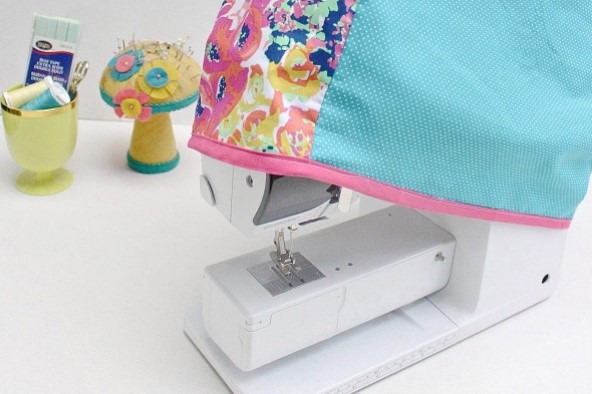
There are a few factors to consider while choosing the best embroidery machine for your home business. In this article, you will learn about each factor and get some good ideas of what’s out there in terms of machines available for home business embroiderers.
An industrial embroidery machine will be an investment in your business rather than just something you’re using for a hobby or craft use, so it’s important not to cheap out when choosing one.
There are three primary factors to decide which embroidery machine is best for you:
1. Size
Size of the machine itself isn’t the only factor to consider. It’s really important to ensure that the model you choose has a large embroidery field. The bigger the area you can sew, the more money you’ll make and the more things you can embroider.
2. Speed and Stitches
What are your business goals? How fast do you want to be able to work? What kinds of stitches are involved in the kinds of embroidery you’ll be doing?
For example, the Avanc 1201C can hold up to 12 spools, and that means 12 colors are available – so it’s easy to switch colors without stopping the machine.
3. Price
Price is important, of course! And industrial machines, made for business, are going to cost you a bit more than home embroidery machines or monogram machines.
For example, you can get a good quality 12 needle machine for under $10,000.
But you can also FINANCE a machine like that for a few hundred dollars per month.
What Else you’ll Need to Start a Home Embroidery Business?
Don’t forget to arm yourself against embroidery problems: Fabric, thread, needles, and hoops will also be needed.
Hoops and Other Supplies:
Hoops are what allow you to stitch on the fabric. A hoop size of 8″ is perfect for most projects, but if you want to go bigger or smaller, it’s also easy to find ones in 6″, 10″, and 12″. And most home machines make you buy them one at a time.
Commercial embroidery machines come with them – The Avance 1201C machine, for example, includes 11 hoops in 9″, 11″, and 14″ sizes with the purchase. You want a slim, ovalized, or “D” style hoop for perfectly embroidered projects.
Other necessities include embroidery floss, stabilizer, bobbins, and scissors. And you want to get a good set of tips for your machine.
Training:
Training is a big part of commercial embroidery, which you’ll discover when you get behind a commercial machine. You don’t want to be left on your own – you need training and support from your dealer for everything from loading bobbins, troubleshooting problems, software tutorials, etc.
And don’t forget to allow for practice time, too. Even if you’re already an experienced machine embroiderer, it’s a good idea to get in some extra training before going into business with your home machine, especially if you plan to use the equipment day in and day out.
Support:
Don’t forget to look at the warranty and after-sales service because this separates home embroidery machines from commercial ones.
Having a machine that doesn’t work when you need it will not be fun! So make sure whatever commercial unit you get has the right warranty and service support to back up your purchase.
Speed of work:
Commercial machines are faster than home machines. You may have to upgrade your internet service or software package if you want to work at the speeds commercial machines can handle.
You want to buy from a dealer who will work with your pricing structure – not force you into a “no-profit” sale through high setup fees or other restrictions. Look for an experienced, reputable dealer nationally.
What are your main business goals? How fast do you want to be able to work? What kinds of stitches are involved in the kinds of embroidery you’ll be doing? Answer all these questions to select the best industrial embroidery machine and supplies for your home business.
Hey welcome to my blog . I am a modern women who love to share any tips on lifestyle, health, travel. Hope you join me in this journey!

Speak Your Mind